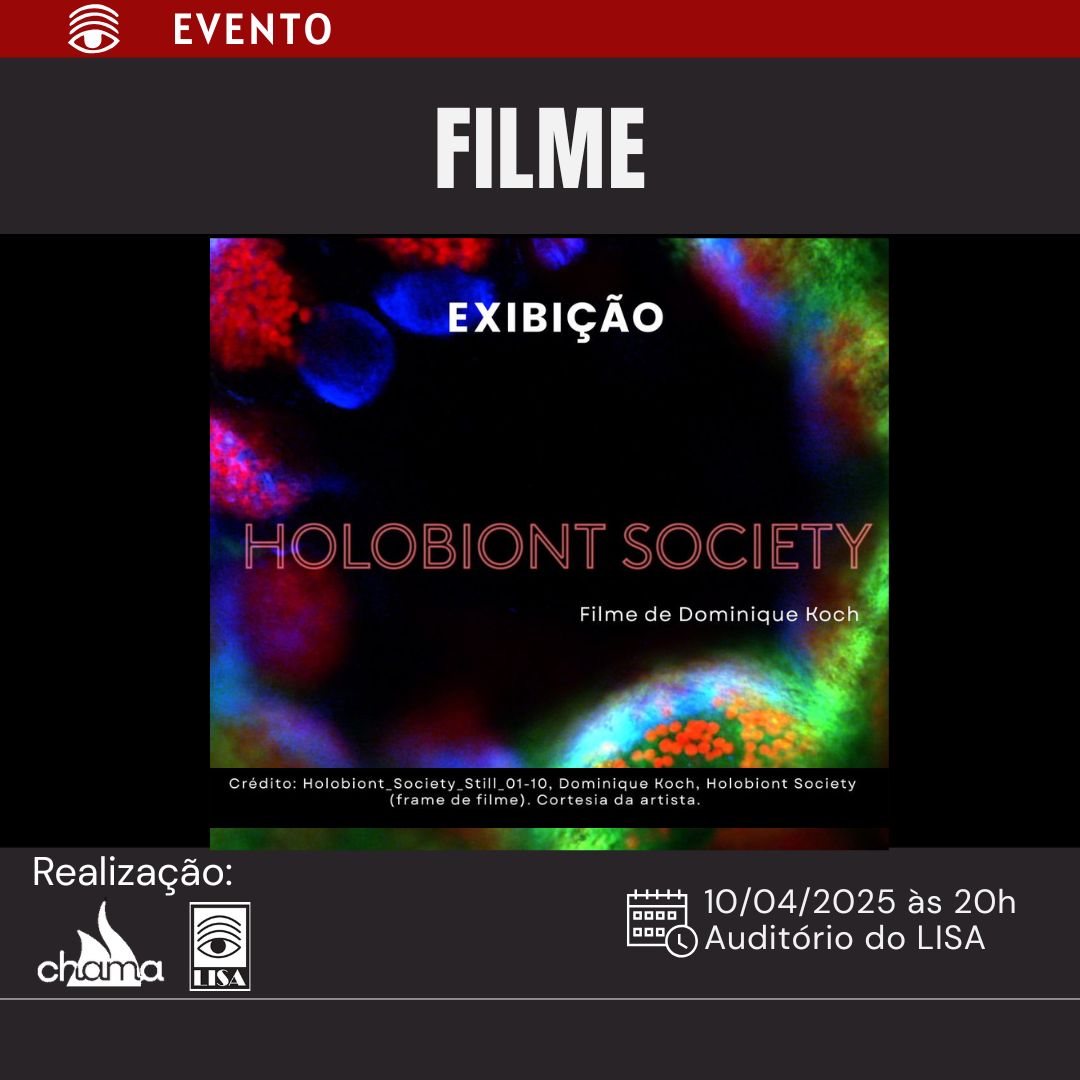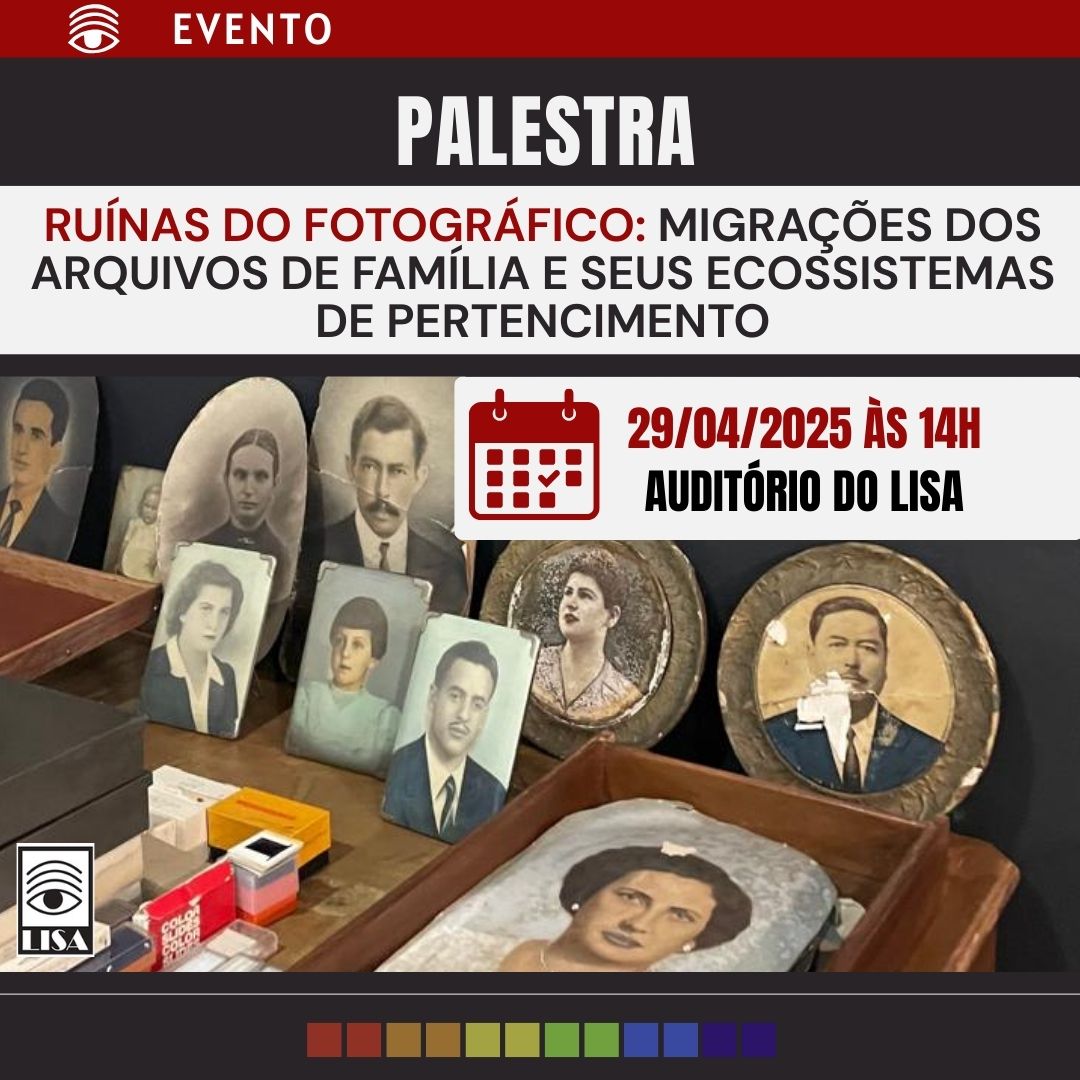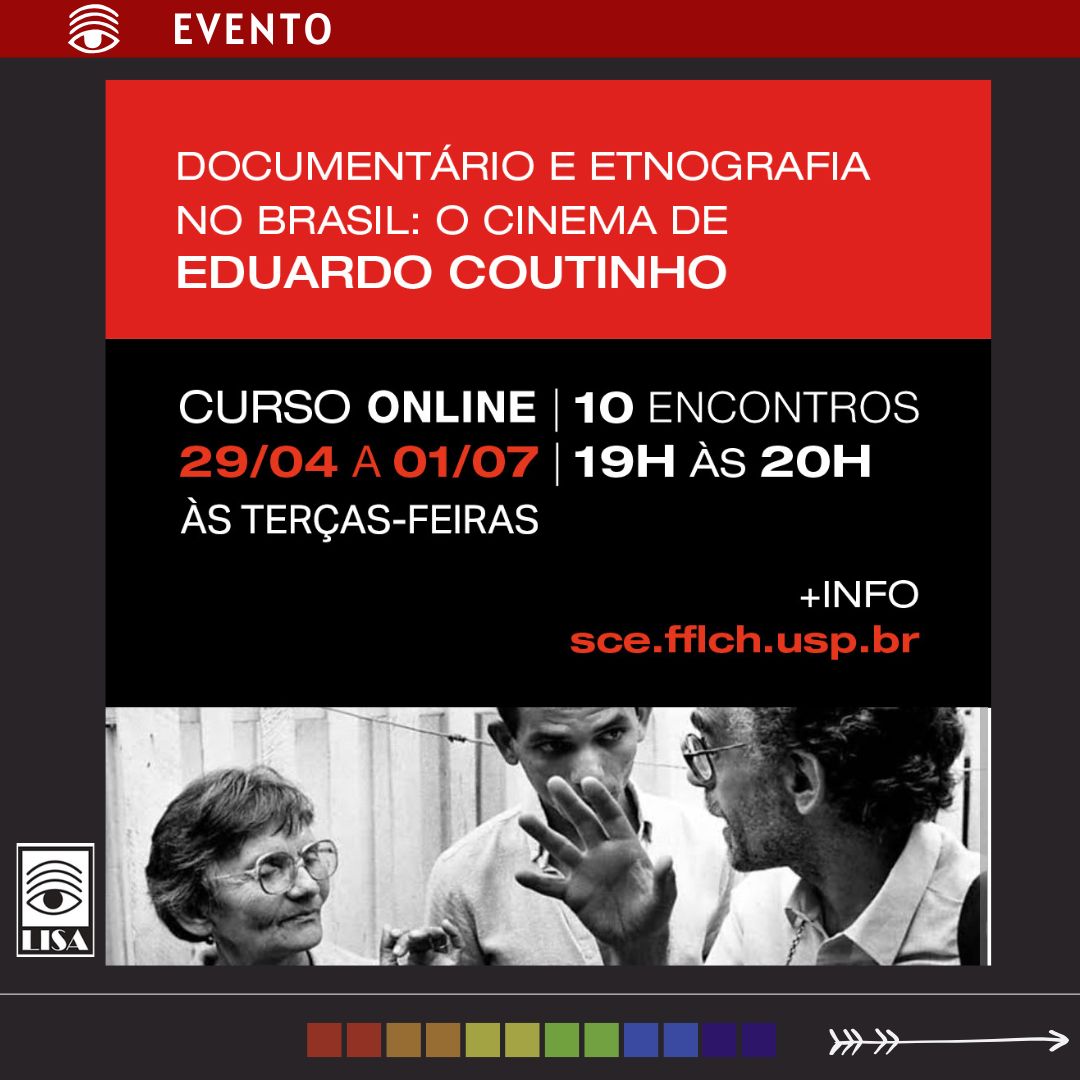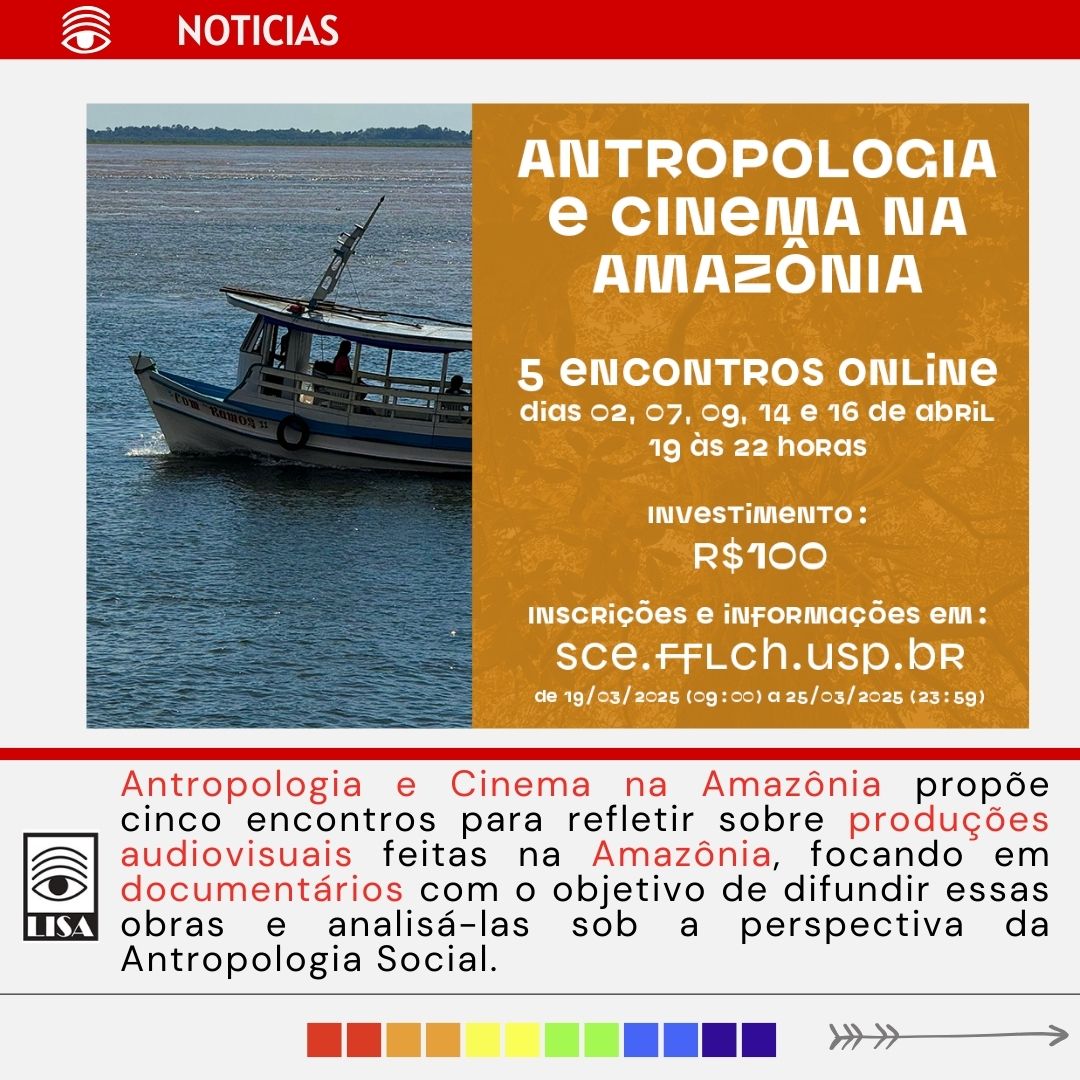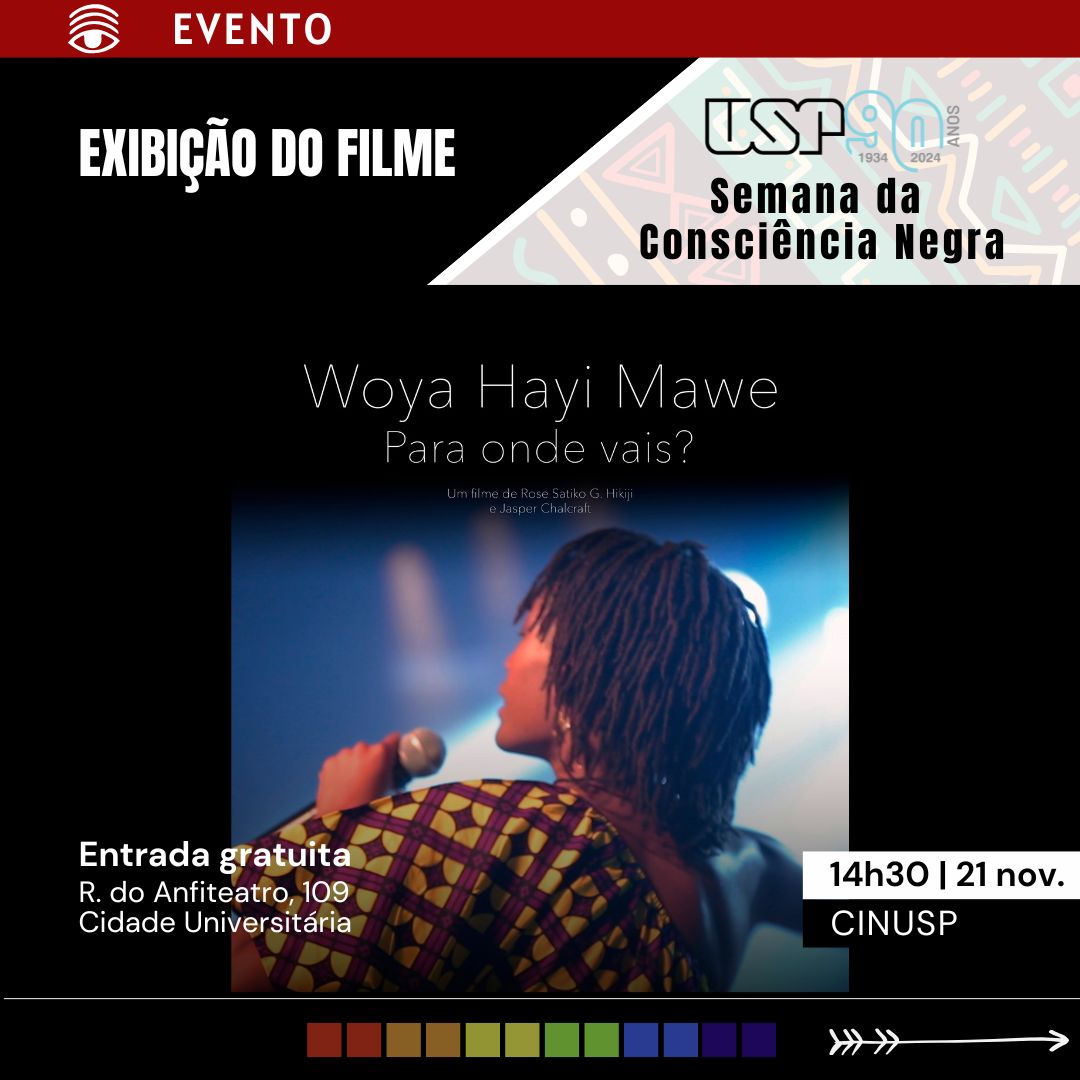Happened at LISA
On April 10, 2025, the film "Holobiont Society" by Swiss artist Dominique Koch will be shown at the Laboratory of Image and Sound in Anthropology (LISA-USP), starting at 8 pm.
Comprising a visual exhibition that has been touring several countries, Holobiont Society delves into a complex set of issues related to hierarchies, power structures and concepts of coexistence, defined by the term holobiont.
Created by biologist Lynn Margulis, co-developer of the Gaia hypothesis, the concept refers to an integrated ecological and evolutionary unit formed by a host organism and all the microorganisms that live in association with it.
In the film, the holobiont is visualized through scientific images of corals, bacteria and other symbiotic organisms, which emerge on the screen along with an elaborate sound design, which works in synergy with excerpts from interviews with biologist, feminist and writer Donna Haraway, as well as philosopher and sociologist Maurizio Lazzarato and molecular biologist Scott Gilbert.
The screening is an outreach activity of the Anthropology, Environment and Biotechnodiversity Collective (CHAMA) and LISA, in addition to being part of the "Anthropology of Microorganisms" course, taught by postdoctoral fellow Leonardo Dupin.
The Laboratory of Image and Sound in Anthropology (LISA-USP) will host on April 29, 2025, at 2:30 p.m., the lecture "Ruins of photography: migrations of family archives and their ecosystems of belonging" by researcher Dr. Fabiana Bruno, a postdoctoral fellow at the Department of Anthropology at USP supervised by Professor Dr. Sylvia Caiuby Novaes.
The lecture will address the context and policies of “emerging collections” formed with abandoned or discarded photos, in particular, vernacular family photographs unlinked from personal albums. The starting point will be the presentation of an overview of the stories of three “emerging collections” researched: Arab Image Foundation (AIF), Lebanon; Found Photo Foundation, England; and ACHO – Arquivo Coleção de Histórias Ordinárias, Brazil.
In these emerging collections, the collected and sheltered vernacular photographs – from diverse sources – acquire other ways of survival, when they are destined for a “second life” in re-gatherings, within the scope of “anarchical” initiatives (Seligmann-Silva, 2023) in different places around the world. In what way does the way of life of these photographs, when gathered in other archival environments, devoid of family belongings, point to other epistemologies of images and archives in anthropology?
Registration for the extension course "Documentary and Ethnography in Brazil: The Cinema of Eduardo Coutinho" is open until April 21, 2025. It will be held from April 29, 2025 to July 1, 2025, in distance learning.
The course aims to explore the relationship between Eduardo Coutinho's documentary cinema and ethnographic practice, highlighting how the Brazilian filmmaker uses documentary as a tool for reflecting on the social reality of Brazil, especially after 1960. Based on the analysis of key works by Coutinho, the course seeks to investigate the specificities of his cinematic approach, which dialogues with anthropological methods of observation, description and the prioritization of the local and the particular. In addition, it intends to discuss the historical and aesthetic impact of documentary cinema in Brazil, considering that Coutinho produced films over half a century, which configures his work as a kind of documentation of the historical, social and political inflections that marked the country during this period. The course also aims to fill a gap in academic studies on Coutinho's work within anthropology, offering a critical and integrated reading of cinema and ethnography.
Amazon Film Course: An Immersion in the Region’s Audiovisual Production
Audience: Researchers, producers, students and everyone who is interested in the cinematic richness of the Amazon.
Objective: The course offers a deep reflection on recent transformations in Amazon cinema, exploring the cultural and identity diversity of Amazonian filmmakers. Focusing especially on documentary productions, the course highlights the social, cultural and aesthetic issues that define cinema in this rich and plural region.
Period of Realization: from 02/04/2025 to 16/04/2025
Hourly Load: 15 hours
Places: 5 to 50 students
Certificate: For those who have 75% of attendance
Detailed Schedule 🎥
Session 1: History and Cinema of the Amazon (17/03/2025)
Reading and Filmography:
Silvino Santos and the Amazonian discursive/visual tradition (Sávio Luis Stoco) and Amazonas, o Maior Rio do Mundo (1920).
Session 2: The Amazon Seen through the Lens of "Others" (19/03/2025)
Reading and Filmography:
Iracema, a transa amazônica e Amazônia S/A (Pindorama Filmes, 2015).
Session 3: Social Projects, Cinemas and Amazonias (24/03/2025)
Reading and Filmography:
Cinema de beiras (Liendria Marla Malcher) and ÃGAWARAITA (2022, Priscila Tapajowara).
Session 4: The Amazon Seen through the Lens of the Amazonids (26/03/2025)
During Black Consciousness Week, we invite you to the CINUSP session that will show the film "Woya Hayi Mawe - Where are you going?"
📅 11/21/2024 (thursday)
🕜 14h30
📌 CINUSP | Anfiteatro street, 109, Cidade Universitária
In the film, we follow the trajectory of Mozambican musician Lenna Bahule between São Paulo, her adopted home, and her hometown, Maputo.
We see how Lenna faces the difficulties of being a musician, a woman and a black woman in Brazil and Mozambique. The artistic world of São Paulo embraces its Africanity, its roots. Already in Mozambique, Lenna is now known for her success in Brazil.
Back in her homeland, she rediscovers it with new eyes. Lenna meets an inspiring generation of musicians from Maputo, who she involves in the production of a great show. Whether on stage, at her grandmother's farm or in a social project on the outskirts of Maputo, we see Lenna and Mozambican artivists investigating the traditional and popular music of their country and discovering new routes. Navigating between activism and the stage, between the imagined Africa that Brazil hopes to find in her, and the Brazilian cosmopolitanism that São Paulo imprints on her, Lenna discovers that her musical roots were even more powerful than she imagined.
Trajectories Cruzadas brings together photographs by Claudia Andujar, Lux Vidal and Maureen Bisilliat
For the first time, the exhibition presents the work of three women photographers who are involved in the defense of indigenous peoples and riverside and country communities
USP's MariAntonia Center opens on October 19th, at 4 pm, the exhibition Crossed Trajectories with works by Claudia Andujar, Lux Vidal and Maureen Bisilliat, with approximately 300 photographs. It is curated by anthropologists Sylvia Caiuby Novaes and Fabiana Bruno. Entry is free.
The exhibition brings together, for the first time, photographs of three European women: Swiss Claudia Andujar, German Lux Vidal and English Maureen Bisilliat. They are women whose careers were marked by the experience of the Second World War, having lived in many countries and mastering several languages. In Brazil, similar trajectories intersect, seeking and revealing a Brazil little known until then by Brazilians.
Anthropology, Performance and Drama Center (NAPEDRA/USP)
Center for Afro-Brazilian Arts at USP
Hybrid Event
Link to all sessions: https://meet.google.com/huf-vvvo- ckh
Programming
October 14th (Monday)
– Online programming via Zoom
● Afternoon (2:00 p.m.):
o Welcome from the organizing committee
John C. Dawsey, Pâmilla Vilas Boas, Fernanda Marcon.
○ Canoe Path: between mirrors and water roots (conversation circle)
Carlos Corrêa Praude (UNB) Rita de Almeida Castro (UNB; NAPEDRA/USP) (remote).
○ Falling Bodies: A film, a massacre, a cyborg and the spiraling time of performance
Scott Head (GESTO/UFSC) (remote)
○ Around the World (Short Film Screening, 14’12)
Alice Villela (NAPEDRA/USP) (remote)
○ Wanderings of Faith (Documentary Screening, 46’)
Carlos Alberto Corrêa Moro (UNICAMP; NAPEDRA/USP) (remote)
Between the 17th and 18th of September 2024, the School of Communication and Arts of University of São Paulo will host the symposium “Corpo-archive: audiovisual practices, memories and imaginations”. The event proposes a dialogue between collaborative archival practices in Latin America, which question and reformulate the hegemonic perspectives on audiovisual memories, their circulation and access, and policies of heritage conservation.
The meeting will feature the participation of archivists, curators and researchers who will reflect on archival practices and their possible imaginations. What are the bodies of a file or more specifically a file-body? What happens if we think of archives as bodies of memories? How are the different power relations and violence inherent to its formation manifested in its marks and absences? And finally, how do smaller audiovisual archives contribute to contemporary decolonial debates about the archive?
To talk about the topic "Archives, university and social memories: Rereadings from different disciplinary and theoretical perspectives", in panel IV, the symposium organization invited Prof. Rose Satiko and documentation specialist Leonardo Rovina Fuzer, from LISA-USP.
Check out the full event schedule at this link.
Registration is now open for the 1st International Seminar Afluences of the Arts from DAKAR, which will take place between September 16th and 19th, 2024, at locations below according to the schedule:
September 16 and 17 - Debate tables: Aurora Furtado Auditorium. Address: Prof. Mello Moraes avenue, n. 1721 block B, room 15, Butantã, São Paulo
September 18 - Collective visit to Museums/Exhibitions (to be confirmed)
September 19 - Film screening and debate at LISA - Image and Sound Laboratory in Anthropology. Address: Anfiteatro street, n. 181, favo 10 - Butantã, São Paulo
The seminar is organized by the Museum of Archeology and Ethnology of the University of São Paulo (MAE/USP), in partnership with FAPESP's thematic project Link'ArtAfricas, and supported by the French Consulate of São Paulo, Laboratory of Image and Sound in Anthropology (LISA/USP) and Imaginary Studies Laboratory (LABI/IPUSP).
For more information about the program and registration, click here.
Registration is now open for the extension course, promoted by LISA-USP, "The path to Alabê: rhythms of the orixás and Brazilian music", coordinated by Profa Rose Satiko and taught by Vitor Israel Trindade de Souza and Elis Sibere dos Santos Monte Trindade de Souza.
The course addresses the rhythms of the Orixás, with their dances and musical manifestations, including their influence on Brazilian Music. The motto and reference will be the instrumentalists/priests of the Orixás, fundamental in Brazilian musicality. The dialogues offered in these meetings are based on the self-taught methodology of the Solano Trindade Family, with the fusion between theory and practice, and the proposal of movement, sound and well-being as epistemology. It will be offered from 12/09 to 14/11/2024 , from 2pm to 5pm, in the LISA-USP auditorium.
More information and registration, visit the website: https://sce.fflch.usp.br/node/5676


